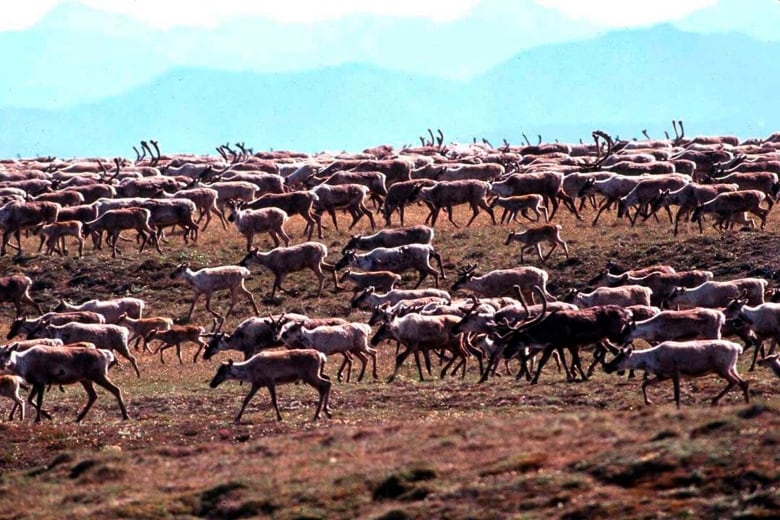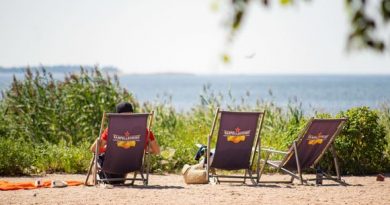Biden signals plans to halt oil activity in Arctic refuge

U.S. Bureau of Land Management in Alaska waits for guidance on presidential order
President Joe Biden on Wednesday signalled plans to place a temporary moratorium on oil and gas lease activities in Alaska’s Arctic National Wildlife Refuge after the Trump administration issued leases in a remote, rugged area considered sacred by the Indigenous Gwich’in.
The plans, along with other proposed executive actions, were announced on a fact sheet by the new administration on Biden’s inauguration day.
Issuing leases had been a priority of the Trump administration following a 2017 law calling for lease sales, said Lesli Ellis-Wouters, a spokesperson for the U.S. Bureau of Land Management in Alaska.
The agency held the first lease sale for the refuge’s coastal plain on Jan. 6. Eight days later, Ellis-Wouters said, it signed leases for nine tracts totalling nearly 1,770 square kilometres. However, the issuance of the leases was not announced publicly until Tuesday, President Donald Trump’s last full day in office.
No official guidance yet
Ellis-Wouters said in an email Wednesday morning that the agency had not yet received official guidance on any presidential orders.
E. Colleen Bryan, a spokesperson for the Alaska Industrial Development and Export Authority, said the state corporation, which was issued seven leases and was the main bidder in the lease sale, “can’t speculate what may happen with the new administration.”
Biden has opposed drilling in the region and the new administration announced plans for an executive order that would temporarily halt lease activities there. Drilling opponents hope it is a step toward providing permanent protections, which Biden called for during the presidential campaign. Details of his plans weren’t immediately available.
Decades-long fight
The fight to open the coastal plain to drilling goes back decades, with the state’s Republican congressional delegation hailing the issuance of leases as “significant and meaningful for Alaska’s future.”
Alaska U.S. Senator Dan Sullivan said in a statement that Americans did not give Biden “a mandate to kill good-paying jobs and curry favour with coastal elites.”
Sullivan added that he “will do everything in my power … to fight back against these job-killing orders and regulatory reviews.”
Alaska Governor Mike Dunleavy, a Republican, said the state “does responsible oil and gas development in the Arctic better than anyone, and yet our economic future is at risk should this line of attack on our sovereignty and well-being continue.”
Oil has long been the economic lifeblood of Alaska, and drilling supporters have viewed development as a way to boost oil production that is a fraction of what it was in the late 1980s, and generate revenue and create or sustain jobs.
Drilling critics have said the area off the Beaufort Sea provides habitat for wildlife including caribou, polar bears, wolves and birds — and should be off limits to drilling. The Gwich’in have raised concerns about impacts on a caribou herd on which they have relied for subsistence.
“It is so important that our young people see that we are heard, and that the president acknowledges our voices, our human rights and our identity,” Bernadette Demientieff, executive director of the Gwich’in Steering Committee, said in a statement.
“We know there’s so much work ahead, and are thankful that the president will take early action to help protect these lands forever.”
Related stories from around the North:
Canada: RBC latest bank that will not directly fund drilling projects in Alaskan Arctic refuge, CBC News
Finland: Miners hunting for metals to battery cars threaten Finland’s Sámi reindeer herders’ homeland, Yle News
Greenland: Greenland issues new exploration, prospecting licences to Anglo American, Eye on the Arctic
Norway: Minister downplays environmental impact of planned mine in Arctic Norway, The Independent Barents Observer
Sweden: The Arctic Railway – Building a future or destroying a culture?, Eye on the Arctic
United States: Analysis – Trump’s legacy leaves Arctic with fewer environmental protections and more risk of conflict, experts warn, CBC News



